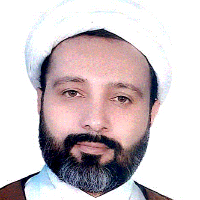The Theory of Fitrah and Sociological & Epistemological Ideas of Allame Tabatabaei
Author(s):
Abstract:
Allame Tabatabaei believes that theory of Fitrah (instinct qualities of human nature) rests upon the principle of general instinct conductance of creatures and considers this theory as a branch of it. He also believes in the theory of eternal inherent happiness and unhappiness of human being، explains it in a way that it can be compatible with the benevolent tendency in every human being’s nature. Allame T. rely on the theory of Fitrah in many of his anthropological and sociological ideas، including man’s need of coexistence and social cooperation، self-defense، proprietorship and the desire for seeking justice. He also investigates the compatibility of this theory with freewill. It can be said that the most important function of the theory of Fitrah in Allame’s thought is seen in the realm of epistemology. To demonstrate for capacity of reason to find the truth in the realm of metaphysics، he relies on the fact of man’s intrinsic tendency to knowing the truth، or in the other words، from man’s Fitrah. Allame believes that human kind by his Fitrah is truth-seeking، truth-follower and a realist being. While believing in the theory of Fitrah، he rejects the reminiscence in Platonic legacy. He has considered the logical thinking، based on premises and inferences، as a requisite of the human nature which is approved by the holy Quran and thus its legitimacy is guaranteed by the Quran.
Keywords:
Language:
Persian
Published:
A Research Biannual Religious Anthropology, Volume:12 Issue: 33, 2015
Pages:
51 to 76
https://magiran.com/p1457882
مقالات دیگری از این نویسنده (گان)
-
The course of the development of the doctrine of Mahdism in Ismailia until the end of the Caliphate of Moez
Mohammad Ghafoori Nejad, Mostafa Nobakht *
Mashreq-e Mouood,


